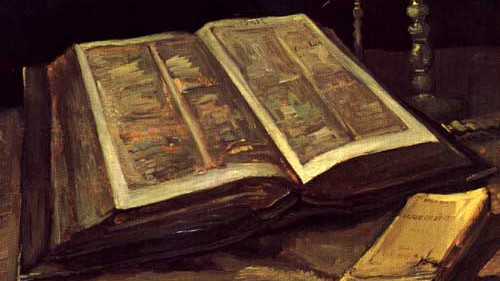
History of the Sabbath After Moses.
1. In the Old Testament:
The early prophets and historians occasionally make mention of the Sabbath.
It is sometimes named in connection with the festival of the new moon (2 Kings 4:23; Amos 8:5; Hosea 2:11; Isaiah 1:13; Ezekiel 46:3 ).
The prophets found fault with the worship on the Sabbath, because it was not spiritual nor prompted by love and gratitude.
The Sabbath is exalted by the great prophets who faced the crisis of the Babylonian exile as one of the most valuable institutions in Israel’s life.
Great promises are attached to faithful observance of the holy day, and confession is made of Israel’s unfaithfulness in profaning the Sabbath (Jeremiah 17:21-27; Isaiah 56:2, 4; Isaiah 58:13; Ezekiel 20:12-24).
In the Persian period Nehemiah struggled earnestly to make the people of Jerusalem observe the law of the Sabbath (Nehemiah 10:31; 13:15-22 ).
2. In the Inter-Testamental Period:
With the development of the synagogue the Sabbath became a day of worship and of study of the Law, as well as a day of cessation from all secular employment.
That the pious in Israel carefully observed the Sabbath is clear from the conduct of the Maccabees and their followers, who at first declined to resist the onslaught made by their enemies on the Sabbath (1 Maccabees 2:29-38 ); but necessity drove the faithful to defend themselves against hostile attack on the Sabbath (1 Maccabees 2:39-41 ).
It was during the period between Ezra and the Christian era that the spirit of Jewish legalism flourished. Innumerable restrictions and rules were formulated for the conduct of life under the Law.
Great principles were lost to sight in the mass of petty details. Two entire treatises of the Mishna, Shabbāth and ‛Ērūbhı̄n , are devoted to the details of Sabbath observance.
The subject is touched upon in other parts of the Mishna; and in the Gemara there are extended discussions, with citations of the often divergent opinions of the rabbis.
In the Mishna (Shahbāth, vii. 2) there are 39 classes of prohibited actions with regard to the Sabbath, and there is much hair-splitting in working out the details.
The beginnings of this elaborate definition of actions permitted, and actions forbidden, are to be found in the centuries immediately preceding the Christian era.
The movement was at flood tide during our Lord’s earthly ministry and continued for centuries afterward, in spite of His frequent and vigorous protests.





